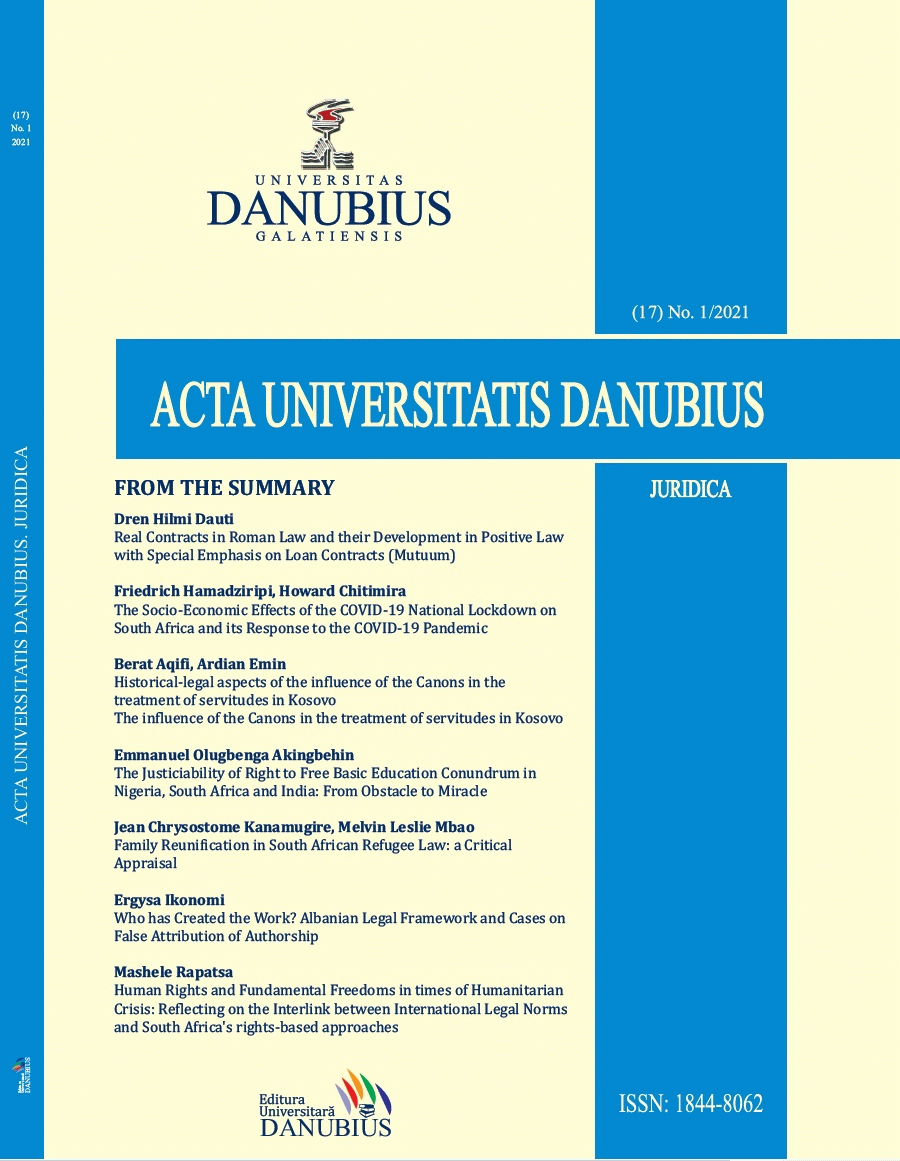Human Rights and Fundamental Freedoms in times of Humanitarian Crisis: Reflecting on the Interlink between International Legal Norms and South Africa’s rights-based approaches
Human Rights and Fundamental Freedoms in times of Humanitarian Crisis: Reflecting on the Interlink between International Legal Norms and South Africa’s rights-based approaches
Author(s): Mashele RapatsaSubject(s): Civil Law, Human Rights and Humanitarian Law
Published by: Editura Universitară Danubius
Keywords: human rights; Covid-19; human wellbeing; humanitarian suffering; development;
Summary/Abstract: This provides a discursive perspective regarding the protection and realization of constitutionally entrenched human rights and fundamental freedoms, especially under circumstances that can best be described as humanitarian crisis. At the centre of attention, the article argues that theCovid-19 pandemic ascertained that human rights and human freedoms are awfully volatile. Further that state functionaries ought to always guard against households and individual deprivations. The emergence of the coronavirus disease (Covid-19) posed major threats to global wellbeing. South Africa’s government deployed the Disaster Management Act 57 of 2002 to declare a national state of disaster, which amongst others, resulted in what is now termed as ‘hard national lockdown’, which itself brought about abrupt loss of enjoyment or limitation of various constitutionally entrenched fundamental rights and freedoms. Hence, law was used to temporarily deprive citizens of certain rights, while also curbing freedoms, to the extent that it would be justified as necessary to arrest the spread of the disease. In this article, I employ the theory of socialization process of human rights norms as propounded by Thomas Risse and Kathryn Sikkink, to highlight pitfalls of South Africa’s rights-based normative framework. It is asserted that while the post-1994 dispensation embedded a rich human rights culture, there is still an overwhelming mismatch between normative legal frameworks and socio-economic and political realities besieging the poor. I argue that the Covid-19and the subsequent national lockdown exposed the how majority of citizens are vulnerable to poverty, deprivations and insecure livelihoods.
Journal: Acta Universitatis Danubius. Juridica
- Issue Year: 17/2021
- Issue No: 1
- Page Range: 115-129
- Page Count: 15
- Language: English

